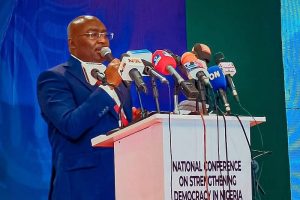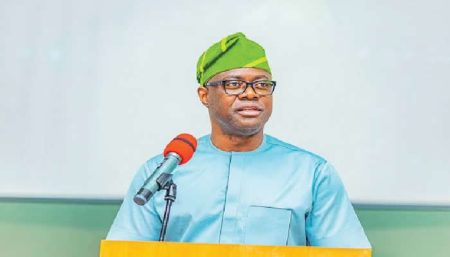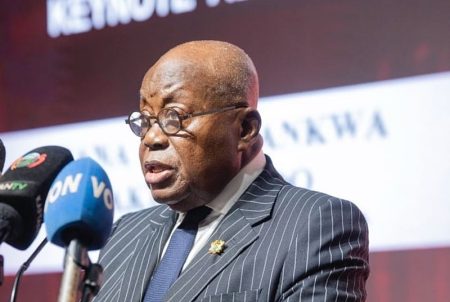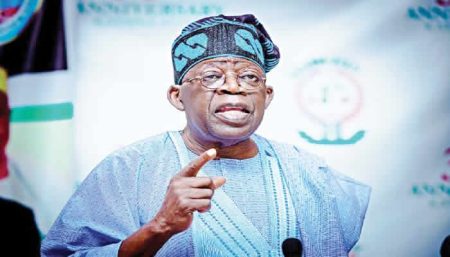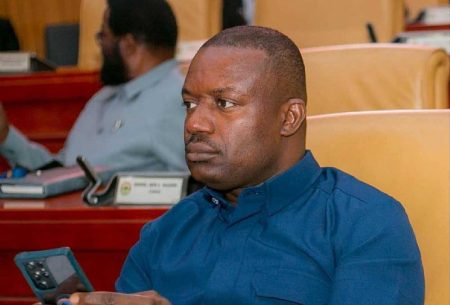The Lagos State House of Assembly has been embroiled in a series of controversies, beginning with the dramatic removal of Speaker Mudashiru Obasa and culminating in allegations of hidden firearms, a purported resignation, and rumors of mass defections. At the heart of the storm is Obasa, who vehemently denies reports that a cache of 47 pump-action guns was discovered in his office by the Department of State Services (DSS). Online platforms initially circulated the story, with variations suggesting the weapons were found either in Obasa’s office or that of the former Chief Security Officer. Obasa dismissed the reports as a malicious fabrication designed to tarnish his reputation, characterizing them as an “afterthought” following his removal. The DSS also refuted the claims, confirming to The PUNCH that no such discovery was made.
Adding to the turmoil, rumors of Speaker Mojisola Meranda’s resignation began circulating online, based on an unverified letter purportedly written by her and dated two years into the future. The letter, which lacked Meranda’s signature, gained traction on social media. However, Meranda’s Chief Press Secretary, Segun Ajiboye, swiftly debunked the rumors, confirming both he and the Speaker were present in their offices and dismissing the online reports as baseless. This attempted misinformation further fueled the existing tensions surrounding the assembly’s leadership transition.
Further complicating the situation were reports that 27 All Progressives Congress (APC) members of the assembly were planning to defect to the Labour Party. The assembly’s Chairman of the House Committee on Information, Strategy, and Security, Ogundipe Olukayode, emphatically denied these claims, labeling them as “malicious and unfounded.” He asserted that the APC remained united and focused, dismissing the reports as a deliberate attempt to sow discord and confusion. Olukayode emphasized that the recent leadership changes within the assembly, including Obasa’s removal and Meranda’s appointment, were internal matters conducted in accordance with the Nigerian Constitution. He reiterated that no members were considering defection, aiming to quell the escalating speculation.
The genesis of the crisis can be traced back to January 13, 2025, when 32 out of the 40 members of the assembly voted to remove Obasa and replace him with then-Deputy Speaker Mojisola Meranda. This move sparked a chain of events that escalated on January 15th, when DSS operatives sealed off the offices of the new speaker and deputy speaker, as well as the assembly chamber itself. This action heightened tensions and further fueled the ongoing power struggle within the assembly. The Inter-Party Advisory Council (IPAC) in Lagos State has since appealed for calm and urged Obasa to accept the outcome of the vote.
IPAC Chairperson, Temilola Akinade, expressed embarrassment over the disruptions to the legislative process, urging Obasa to “give peace a chance.” Acknowledging Obasa’s past contributions, Akinade emphasized that the lawmakers had exercised their constitutional right to choose their leader, and that Meranda’s election should be respected. She stressed the importance of prioritizing the democratic process over personal or group interests, urging all parties to allow Meranda to carry out her duties without further interference. Akinade expressed concern for the emotional toll the crisis was taking on Meranda, calling for an end to the disruptions so she could focus on her legislative responsibilities.
The ongoing crisis within the Lagos State House of Assembly reveals a complex interplay of power dynamics, political maneuvering, and misinformation. The allegations against Obasa, the rumors surrounding Meranda’s resignation, and the speculation about mass defections have created a tumultuous atmosphere. While the DSS has refuted the claims about the weapons cache and Meranda has denied resigning, the underlying tensions remain. The IPAC’s call for peace and respect for the democratic process underscores the need for stability and a return to regular legislative functions. The future of the assembly hinges on the ability of its members to navigate these challenges and work towards a resolution that upholds democratic principles and serves the best interests of the people of Lagos State.



